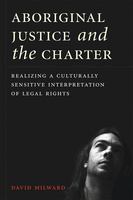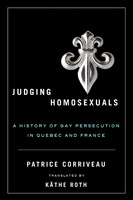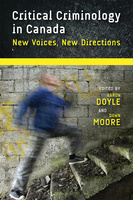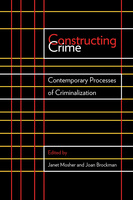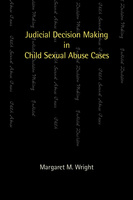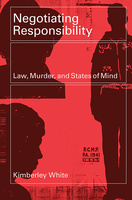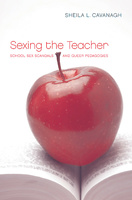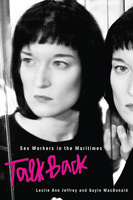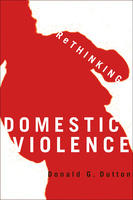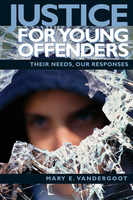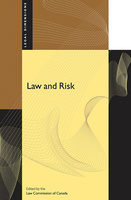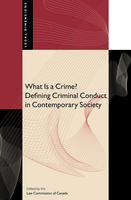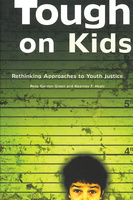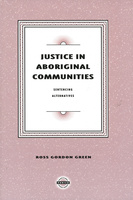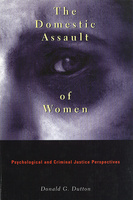Aboriginal Justice and the Charter
Realizing a Culturally Sensitive Interpretation of Legal Rights
This book explores the tension between Aboriginal justice methods and the Canadian Charter of Rights and Freedoms, while searching for practical ways to implement Aboriginal justice.
City of Order
Crime and Society in Halifax, 1918-35
A groundbreaking exploration of the causes and consequences of Halifax’s tough-on-crime measures in the interwar era.
Judging Homosexuals
A History of Gay Persecution in Quebec and France
This history examines shifting constructions of homosexuality over time through a comparative analysis of gay persecution in France and Quebec.
Critical Criminology in Canada
New Voices, New Directions
A new generation of critical criminologists examines the future of criminology and criminal justice in Canada.
Constructing Crime
Contemporary Processes of Criminalization
Five unique case studies reveal how crime is being constructed and enforced in contemporary Canada.
Criminal Artefacts
Governing Drugs and Users
By looking curiously on the criminal addict as an artefact of criminal justice, this book asks us to question why the criminalized drug user has become such a focus of contemporary criminal justice practices.
Moving Toward Justice
Legal Traditions and Aboriginal Justice
Exploring constitutional and administrative policy changes that underscore the urgent need for Aboriginal justice reform.
Judicial Decision Making in Child Sexual Abuse Cases
Laws and definitions of sexual abuse may have changed since the 1980s, but this book demonstrates that interpretation of the law still depends on the social construction of children and on judges’ own understanding of what constitutes child sexual abuse.
Negotiating Responsibility
Law, Murder, and States of Mind
Kimberly White provides an essential point of reference from which to evaluate current criminal law practices and law reform initiatives in Canada.
Sexing the Teacher
School Sex Scandals and Queer Pedagogies
A provocative study of public and professional responses to female teacher sex scandals, this book employs queer theory, psychoanalysis, and feminist film theory to examine sensationalized legal cases, including Mary Kay Letourneau, Amy Gehring, and Heather Ingram.
Sex Workers in the Maritimes Talk Back
Sex workers in three Maritime cities discuss violence and safety, health, politics, and public perception of the trade, portraying the best and the worst facets of their working lives.
Rethinking Domestic Violence
Dutton’s rethinking of the fundamentals of intimate partner violence is essential reading for psychologists, policy makers, and those dealing with the sociology of social science, the relationship of psychology to law, and explanations of adverse behaviour.
Justice for Young Offenders
Their Needs, Our Responses
This ground-breaking analysis of complex issues of youth justice challenges the assumptions behind Canada’s approach to youth justice and mental health disorders.
Law and Risk
Demonstrating the linkages between law and risk, these essays tackle some difficult topics, including dangerous offenders, sex offender notification, drug courts, genetic research, pesticide use, child pornography, and tobacco advertising.
What Is a Crime?
Defining Criminal Conduct in Contemporary Society
What Is A Crime? examines how we define criminal conduct in contemporary society, and how we respond to it once it has been identified.
Tough on Kids
Rethinking Approaches to Youth Justice
In this compelling, thought-provoking and sometimes heartbreaking book, the authors use the stories of their young clients to illustrate the very real costs of the current system, analyzing theories behind youth justice, and how these are reflected in Canadian legislation both past and present.
Justice in Aboriginal Communities
Sentencing Alternatives
Using several Aboriginal communities as case studies, Green analyzes the successes and challenges for alternative sentencing within the Canadian criminal justice system.
Qualities of Mercy
Justice, Punishment, and Discretion
These top scholars probe the discretionary use of power and inquire how it has been exercised to spare convicted criminals from the full might of the law.
The Domestic Assault of Women
Psychological and Criminal Justice Perspectives
Argues that only by understanding the psychology of both the aggressors and the victims of wife assault can we generate informed social and criminal justice policy.

